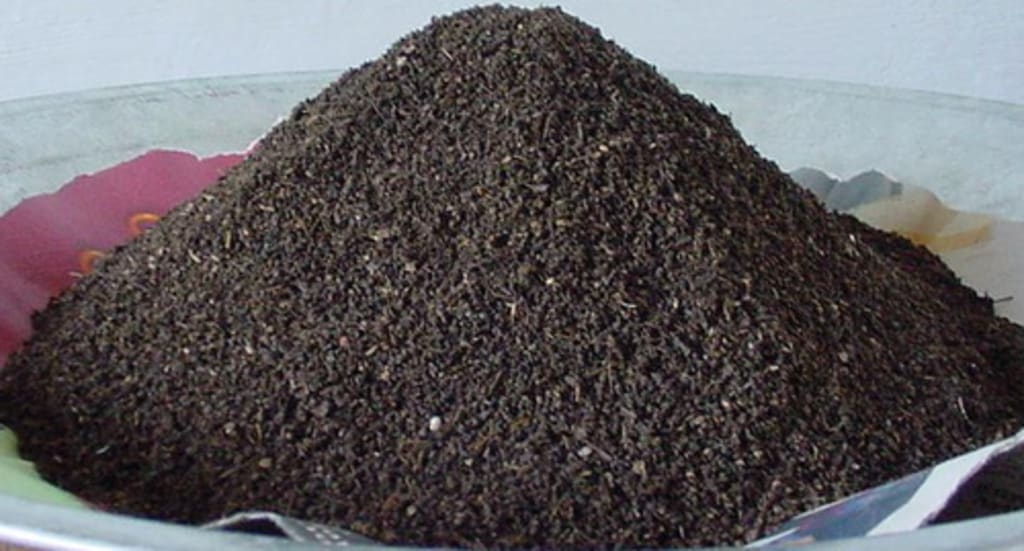Unleashing the Power of Nature's Black Gold for Sustainable Gardening
Vermicompost

Vermicompost: Nature's Black Gold for Sustainable Gardening
Introduction
In the world of gardening and agriculture, the quest for organic and sustainable practices is gaining momentum. One such practice that has been gaining popularity is vermicomposting. Also known as worm composting, vermicomposting is the process of using specialized worms to break down organic waste into nutrient-rich compost. This article delves into the fascinating world of vermicompost, exploring its benefits, the process, and how it contributes to sustainable gardening practices.
What is Vermicompost?
Vermicompost is often referred to as "black gold" due to its remarkable properties and benefits for soil health. It is a nutrient-rich, dark brown or black material that is produced through the decomposition of organic waste by earthworms. These earthworms, specifically red worms (Eisenia fetida), consume organic matter like kitchen scraps, garden waste, and other organic materials, passing them through their digestive systems. The resulting waste, called castings, is rich in beneficial microorganisms, plant nutrients, and humus.
Benefits of Vermicompost
Nutrient-Rich Soil Amendment: Vermicompost is a powerhouse of essential nutrients for plants. It contains a balanced blend of nitrogen, phosphorus, potassium, and other micronutrients necessary for healthy plant growth. These nutrients are present in a form that is readily available to plants, promoting robust root development, lush foliage, and abundant flowering.
Improved Soil Structure and Water Retention: Adding vermicompost to the soil enhances its structure, creating a crumbly texture that allows for better aeration and root penetration. The organic matter in vermicompost improves soil's water-holding capacity, reducing the risk of water runoff and helping plants withstand periods of drought.
Enhanced Plant Growth and Disease Resistance: Vermicompost fosters beneficial microbial activity in the soil. These microorganisms, including bacteria, fungi, and protozoa, help break down organic matter further and release nutrients in plant-available forms. They also create a symbiotic relationship with plants, aiding in nutrient absorption, disease suppression, and overall plant health.
Environmentally Friendly Waste Management: Vermicomposting is an eco-friendly way to manage organic waste. It reduces the volume of waste sent to landfills, decreasing methane emissions, and turning waste into a valuable resource. By diverting organic waste to vermicomposting, gardeners and households can contribute to reducing their carbon footprint and promoting sustainable waste management practices.
The Vermicomposting Process
Vermicomposting involves creating a suitable habitat for worms to thrive and decompose organic matter effectively.
Here are the key steps in the vermicomposting process:
Selecting the Right Worms: Red worms, also known as red wigglers or Eisenia fetida, are the preferred worms for vermicomposting. They are efficient decomposers and can handle a wide range of organic materials.
Setting Up the Worm Bin: A worm bin serves as the home for the worms. It can be a container made of plastic, wood, or other suitable materials. The bin should have proper ventilation, drainage holes, and a lid to maintain the ideal conditions for the worms.
Adding Bedding Material: Bedding provides a comfortable environment for the worms and helps regulate moisture levels. Shredded newspaper, cardboard, coconut coir, or leaf litter can serve as suitable bedding materials.
Introducing the Worms and Organic Waste: Once the bin and bedding are ready, add the worms to the bin and gradually introduce organic waste. Kitchen scraps, vegetable peelings, coffee grounds, tea leaves, and yard waste can be added. Avoid meat, dairy, oily foods, and citrus peels, as these may attract pests or hinder worm activity.
Maintaining the Worm Bin: Regularly monitor the moisture levels in the bin. The bedding should be moist but not waterlogged. Add water or moist bedding as needed. Feed the worms regularly, burying the organic waste beneath the bedding to prevent odor and fruit fly issues. Avoid overfeeding the worms to maintain a balanced environment.
Harvesting the Vermicompost: Over time, the worms will transform the organic waste into vermicompost. To harvest the compost, create a separation zone in the bin, placing fresh bedding and food on one side. The worms will migrate to the new area, allowing you to collect the mature vermicompost from the other side.
Conclusion
Vermicompost is a remarkable natural fertilizer and soil amendment that offers numerous benefits for sustainable gardening. By harnessing the power of earthworms to convert organic waste into nutrient-rich compost, vermicomposting promotes healthy plant growth, improves soil structure, and contributes to environmental sustainability. Whether you are a seasoned gardener or new to composting, exploring the world of vermicompost can unlock a world of possibilities for greener, more vibrant gardens while reducing waste and nurturing the planet's health.
About the Creator
Ajith Kumar
Good story teller about Sci-Fi, Adventure, thriller
Good in Pet Fishes and Pet Birds detailes
Good in General Facts






Comments
There are no comments for this story
Be the first to respond and start the conversation.